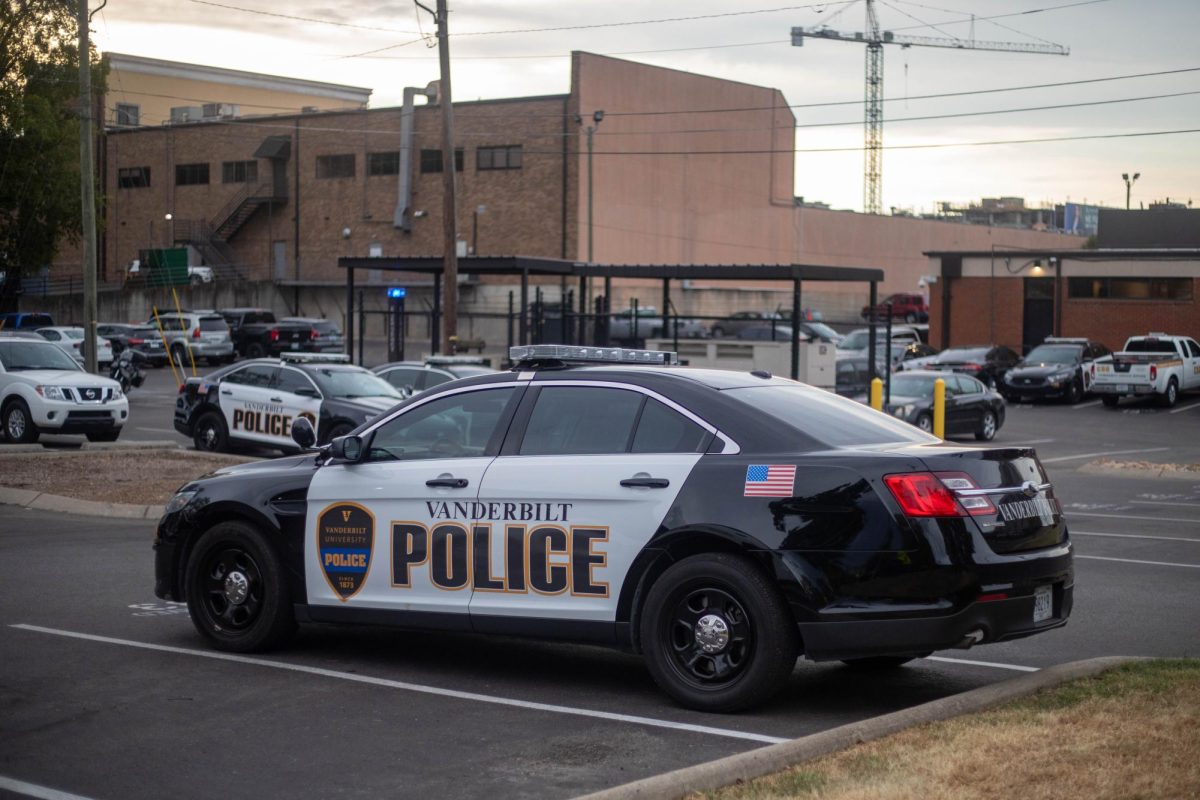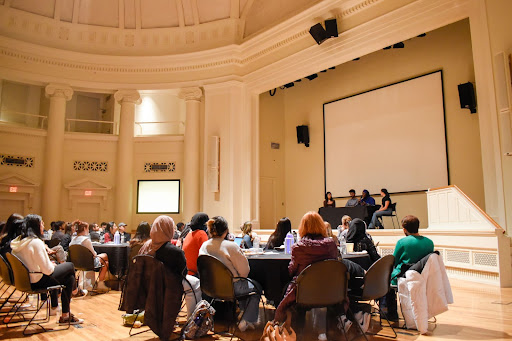Vanderbilt’s Muslim Students Association released a statement on Oct. 28 condemning reported instances of Islamophobia on campus and in the United States in the wake of the Israel-Hamas War. In the message, they expressed dissatisfaction with meetings that have taken place between their community and administrators, calling on the university to better support Muslim students.
Vanderbilt Hillel’s executive director, Ari Dubin, did not respond to The Hustler’s request for comment on whether any Jewish students have encountered similar harassment on campus. Nashville’s Jewish community — totaling 11,000 people — has similarly been “on high alert” for the past couple of weeks after former Hamas chief Khaled Meeshal called for the “application of jihad” on Oct. 13. MNPD police chief John Drake said that there was no known credible threat to Nashville but that police presence would be increased in predominantly Jewish areas.
“Hatred — whether through racism, xenophobia, Islamophobia, anti-semitism or any other form — has no place at Vanderbilt University or in our society, and we, as Vanderbilt students, must speak out about this increasing vitriol against our right to religious freedom,” MSA’s statement reads.
The statement was released on Instagram one day after Students Supporting Israel at Vanderbilt, an unofficial student organization, staged a walkout and demonstration in support of Israel outside Rand Dining Hall. Other students simultaneously congregated to express solidarity with Palestine.
Dean of Students G. L. Black affirmed Vanderbilt’s commitment to student safety in an Oct. 17 email addressed to students.
“We want every student at Vanderbilt to feel a sense of safety and belonging, and there is no place for discrimination or prejudice, including antisemitism, Islamophobia and xenophobia, on our campus,” the email reads.
Black said VUPD has increased security on campus and encouraged students to report incidents of discrimination and harassment to the Equal Opportunity and Access office.
Safety concerns
MSA stated that some of their members, particularly women who wear hijabs, have been the target of anti-Muslim sentiment over the past couple of weeks.
“Our campus community is witnessing a surge in hate speech and Islamophobic incidents against Muslim students,” the statement reads. “These incidents, which are the byproducts of media misinformation, seek to perpetuate stereotypes against Muslims and other minority communities, thereby alienating us and creating a hostile campus environment.”
One student, who has been granted anonymity for safety concerns, expressed fear over current rhetoric surrounding the Israeli-Palestinian conflict on campus, comparing it to the prejudiced rhetoric that followed al-Qaeda’s Sept. 11 terrorist attacks.
“Post 9/11, American Arabs and Muslims — and anyone who could be mistaken for either — suffered through terrible racist attacks and judgements. Personally, I know far too many who suffered in hate crimes just for even looking somewhat ethnic,” the student told The Hustler on Oct. 13.
MSA cited other instances of anti-Muslim and anti-Palestinian rhetoric and actions across the U.S., stating that Vanderbilt is not alone in its Islamophobic incidents.
“These are just a few examples of the Islamophobia and racism that Muslims are facing…When our [MSA’s] members are being physically intimidated, being called ‘terrorists’ and being harassed while collecting donations for charity, our safety on campus is jeopardized,” the statement reads.
Instances of antisemitic harassment, vandalism and assault have seen a 388% uptick in the U.S. between Oct. 7-23 compared to that same period in 2022, according to the Anti-Defamation League. The ADL is an international Jewish, pro-Israel advocacy group that aims to combat antisemitism.
Calls on administration
MSA’s statement also criticizes Vanderbilt’s commitment to principled neutrality and calls upon the administration to address the organization’s concerns.
“Thus far, despite several meetings with university officials, not much tangible action has transpired. Let us be clear: A policy of institutional neutrality neither excuses nor justifies inaction regarding harassment and discrimination on campus,” the statement reads.
Diermeier confirmed to The Hustler that meetings had occurred between administrators and affected students and emphasized the university’s commitment to supporting students. He said on Oct. 23 that he recognizes the additional support currently needed by Muslim and Middle Eastern students. He shared in his Oct. 11 email that he and other administrators had spent several hours meeting and supporting Vanderbilt’s Jewish community but did not mention meeting with Muslim or Palestinian students.
“We want to make sure that members of our community feel some sense of belonging. I’m worried about all students, but right now, I think Muslim students and Middle Eastern students need an extra level of support,” Diermeier said.
Imam Ossama Bahloul, resident scholar at the Islamic Center of Nashville, similarly penned a “Letter for Fairness and Belonging” on Oct. 14 addressed to Vanderbilt administrators, among other academic and business leaders. In the letter, Bahloul raised concerns about Muslim student and employee safety, as well as alleged bias in institutional statements.
“The prevailing narrative articulated in some statements, which are intended to address the ongoing situation between Israelis and Palestinians, have presented a one-sided perspective showing solidarity and concern only for the Israeli government with no acknowledgement of the ongoing and historical suffering and death of Palestinians,” the letter reads.
In Chancellor Daniel Diermeier’s Oct. 11 email to students about the conflict, he expressed concern over “the acts of terror and atrocities committed by Hamas in Israel.” Vanderbilt shared on social media a message of support and a picture of the Oct. 10 vigil for Israel organized by Vanderbilt Hillel and Chabad. Students for Justice in Palestine and the Muslim Students Association hosted a community prayer on Oct. 13 for Palestinian lives lost. No pictures of or messages acknowledging this event were shared on Vanderbilt’s social media.
Bahloul emphasized the harm he believes the university’s rhetoric could cause to students of all faiths on campus.
“When educators and academic institutions make biased and imbalanced public statements on the situation and fail to acknowledge the struggles and humanity of an entire ethnicity, this contributes to a hostile school environment,” Bahloul said. “It is time for this [rhetoric] to change so we can finally truly work towards realizing peace through fairness and justice for all.”






